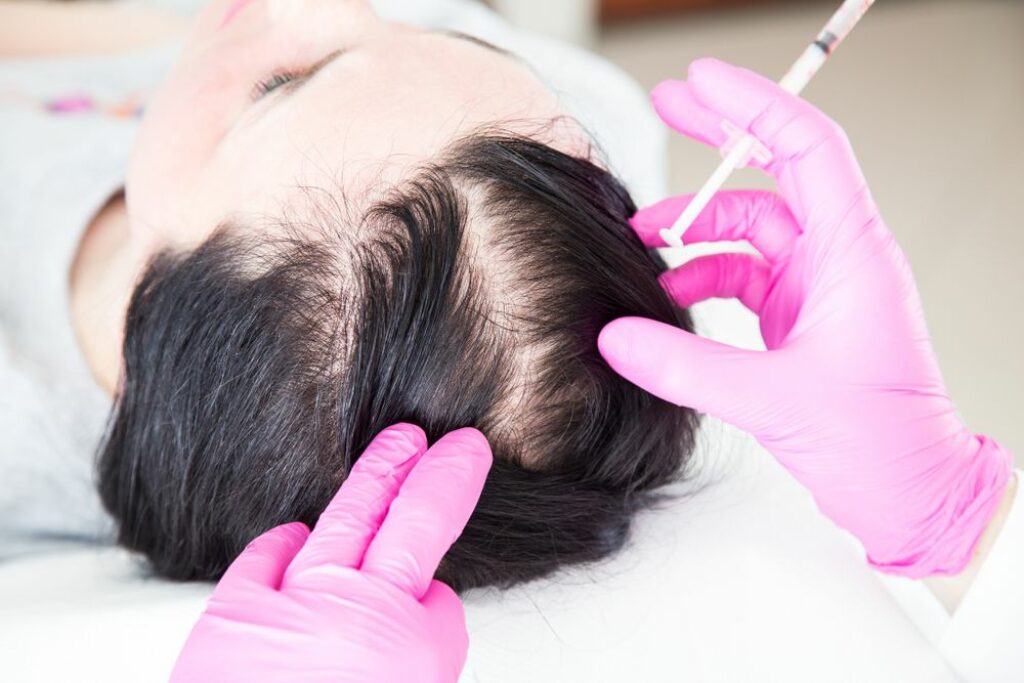
Best Hair Loss Treatments for Women
Although a growing number of people worldwide consider it to be sexist and grossly unfair, much of society still persists with the mentality that women must have a full head of hair to be deemed beautiful and attractive. Thus, when hair loss occurs, it severely damages a woman’s self-image.
Related Topics (Sponsored Ads):
Seeing too many hair strands or clumps of hair in your brush or shower drain? Then you’re experiencing a case of hair loss. Hair loss can be a distressing and traumatic experience for women, impacting their self-esteem and overall well-being. This condition is also referred to as Alopecia, an umbrella term for several types of hair loss, such as Alopecia Totalis, Androgenic Alopecia and Alopecia Areata.
Thankfully, there are various treatments available that can help combat hair loss, rejuvenate hair follicles and promote new growth. By understanding the causes of hair loss and the suitability of each treatment, women can make informed decisions to address this common concern.
It’s very frustrating, but there is hope. In this article, we will explore the best hair loss treatments for women, including non-medical options such as supplements, diet, lifestyle changes and specific medical treatments.

Understanding the Causes and Risk Factors of Hair Loss in Women
Hair loss in women can be caused by a variety of factors, including hormonal changes, genetic predisposition, nutritional deficiencies, stress, and certain medical conditions. It is essential to identify the underlying cause of hair loss to determine the most effective treatment approach.
Some risk factors for hair loss in women include age, family history, certain medications, and specific medical conditions such as polycystic ovary syndrome (PCOS) or thyroid disorders.
Non-Medical Treatments
-Supplements:
Certain supplements can help nourish the hair follicles and promote healthy hair growth. Biotin, also known as vitamin B7, is a popular supplement that strengthens hair and prevents breakage. Other supplements like iron, zinc, and vitamin D can also be beneficial for hair health. However, it is important to consult with a healthcare professional before starting any supplement regimen.
– Diet:
A balanced diet rich in essential nutrients can play a crucial role in maintaining healthy hair. Foods such as eggs, fatty fish, nuts, seeds, fruits, and vegetables provide essential vitamins, minerals, and antioxidants that support hair growth. Additionally, avoiding crash diets and consuming adequate protein can help prevent hair loss caused by nutritional deficiencies.
-Lifestyle Changes:
Certain lifestyle habits can contribute to hair loss. Avoiding excessive heat styling, chemical treatments, and tight hairstyles can minimize hair damage and breakage. Additionally, managing stress levels through practices like meditation, exercise, and adequate sleep can help reduce hair loss caused by stress.
Topical Treatments
There are several topical treatment options that you can try. Some of the most commonly used ones include:
– Minoxidil:
Minoxidil, available in various strengths, is an FDA-approved topical treatment for hair loss. It works by revitalizing hair follicles and stimulating hair growth. Women can apply minoxidil directly to the scalp once or twice daily. However, it may take several months of consistent use to see noticeable results. It is important to note that minoxidil may cause scalp irritation in some individuals.
– Ginger / Rosemary Shampoo:
Look for gentle yet effective liquid or bar shampoos that contain these natural ingredients, and don’t contain any harsh and damaging chemicals. If it’s organic, that’s even better.
Platelet-Rich Plasma (PRP) Therapy
Platelet-Rich Plasma (PRP) therapy is a medical treatment that involves extracting a small amount of the patient’s blood, processing it to concentrate platelets, and then injecting it into the scalp. The growth factors in platelets promote hair growth and stimulate dormant hair follicles. PRP therapy is suitable for women with androgenetic alopecia or other types of hair loss. Multiple sessions may be required for optimal results.
Low-Level Laser Therapy (LLLT)
Low-Level Laser Therapy (LLLT) involves using red or near-infrared light to stimulate hair growth. This non-invasive treatment is believed to improve blood circulation in the scalp and promote cell metabolism in hair follicles. LLLT can be administered through handheld devices or in-office treatments. It is a safe and painless procedure that can be done at home or at a dermatologist’s office.
Hair Transplantation
Hair transplantation is a surgical procedure that involves removing hair follicles from a donor site and implanting them into areas experiencing hair loss. This treatment is suitable for women with significant hair loss who have sufficient donor hair. It provides permanent results, but it is a more invasive option. Therefore, it requires careful consideration and consultation with a qualified surgeon beforehand.
Choosing the Right Treatment for You
Choosing the right hair loss treatment depends on various factors, including the cause of hair loss, the severity of the condition, personal preferences, and budget. It is crucial to consult with a dermatologist or hair loss specialist to determine the most suitable treatment option. They can assess your individual needs and guide you towards the best course of action.
Final Thoughts
Although there is still no cure for hair loss, extensive efforts and research is currently being conducted to change this. Until then, the treatment options mentioned above have shown to have a positive effect in slowing the hair loss, and in some cases, stopping it completely with continuous and proper use.




